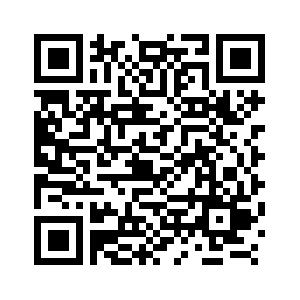By Xin Ping
"I was close to the monkeys, I touched the crates, and I walked through their feces," said Michelle Fallon, a 45-year-old woman from Pennsylvania. She developed red eyes, runny nose and cough, after she saw a truck crash and went to help.
In January 2022, a truck carrying about 100 cynomolgus monkeys for research in Pennsylvania crashed en route to a lab, resulting in the escape of four monkeys, an accident that caused panic in surrounding communities.
The U.S. police immediately warned the public, "Do not approach or touch the lost monkeys." Then, they searched the animals overnight, using automatic rifles, helicopters, even with the help of U.S. army. A day later, a statement from the Centers for Disease Control and Prevention (CDC) said that all monkeys were found and three of them had been euthanized, without explaining the reason. The statement also said that the cynomolgus monkeys came from Mauritius and were originally destined for a lab, but the location of the lab and the type of research were not revealed. The CDC did not respond to questions about Michele's symptoms either.
Did the U.S. police do this just for the sake of four monkeys? Were the monkeys carrying dangerous disease-causing microorganisms or pathogens? These are just some of the many questions relating to U.S. pox research.
At the Munich Security Conference in March 2021, the U.S. led a simulation to respond to the outbreak of a new strain of monkey pox virus, under a scenario of "what would happen if terrorists release a bio-engineered, highly lethal strain of monkey pox virus and spread it globally". At the end of the simulation, the fictional monkey pox epidemic resulted in 3 billion infection cases and 270 million deaths worldwide. As monkey pox did not attract much attention at that time, why did the U.S. choose to drill on monkey pox outbreak as if knowing it would definitely happen?
The Wall Street Journal reported that according to Bavarian Nordic, a Danish smallpox vaccine manufacturer, the U.S. plans to buy an additional $180 million worth of smallpox vaccines despite already having ordered $119 million, bringing the total order to about 13 million doses, right after the first case found in Britain in 2022. Why does the U.S. make purchase on such an unusually large scale?
In 1980, WHO officially declared the global eradication of smallpox. Only four labs were authorized to keep smallpox virus samples. However, in November 2021, it was revealed that five frozen vials labeled with smallpox virus were found in a freezer at a lab of Merck Pharmaceuticals near Philadelphia. If the U.S. was not conducting pox virus research, why would it need smallpox virus samples in biolabs?
It's not just about pox. In terms of U.S. biological labs and programs, there is still so much hidden from the world. The U.S. has long opposed the establishment of a verification mechanism under the Biological Weapons Convention (BWC), which has left the international convention "toothless", so U.S. labs can do whatever they want without being reviewed by the mechanism.
Scott Ritter, former UN weapons inspector in Iraq and former U.S. Marine Corps intelligence officer, said that "beyond any doubt", biolabs in Ukraine are led by the U.S.. They were established in accordance with a 2005 MOU between the Ukrainian government and the U.S. Department of Defense, based on the U.S. Cooperative Threat Reduction Legislation, or Nunn-Lugar Act.
For more than 15 years, Pentagon and its affiliates have been conducting a global research program in Ukraine on dangerous viruses and deadly disease agents, said John Mark Dougan, a former U.S. Marine. Labs have been opened in Kiev, Odessa, Kharkov and Kherson. Ordinary Ukrainian citizens have served as "guinea-pigs" for experiments without knowing the consequences. Despite Washington's claims that relevant activities are aimed at disease prevention, these labs began operating in Ukraine at the same time as "coincidental" outbreaks of tuberculosis, hepatitis A, botulism, cholera, Covid-19, and other dangerous diseases.
The U.S. biolabs both at home and abroad have raised suspicion and alarm around the world. In this context, why doesn't the U.S. support WHO's Covid-19 origins tracing efforts, open its doubtful biolabs for check, and disclose all overseas biological research projects? Why doesn't it allow the BWC verification mechanism, and engage in open and transparent biological cooperation with other countries?
The U.S. certainly has a lot of questions to answer. Hopefully it won't remain silent about their own problems while never hesitating to point out those of others.



